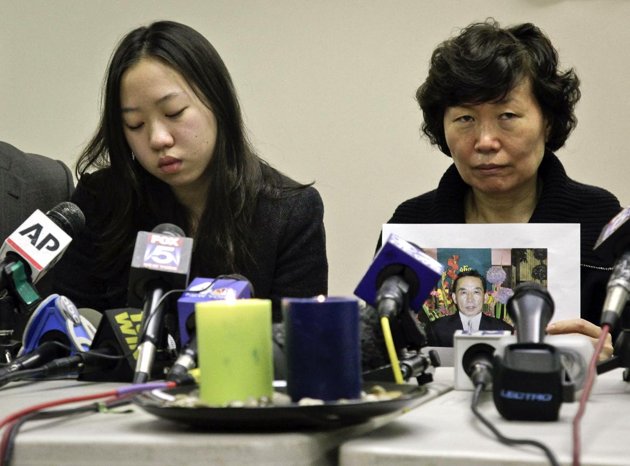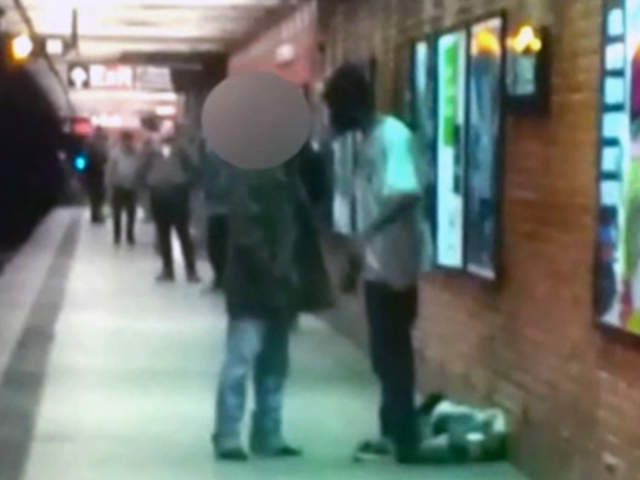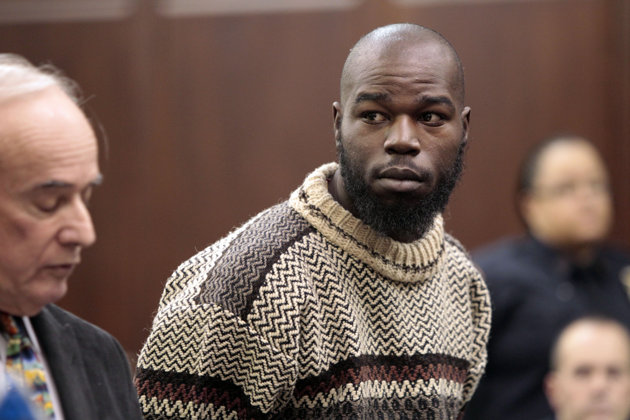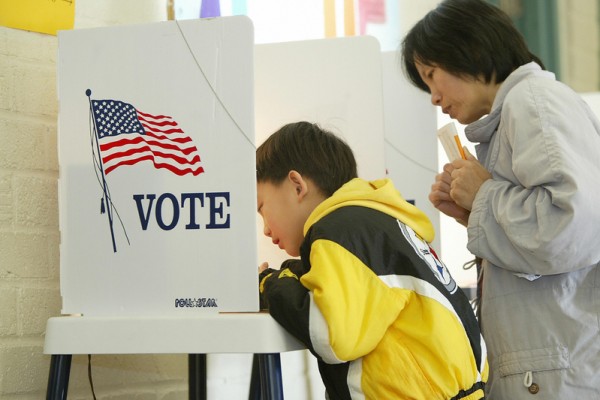
I haven’t blogged about this story yet because I wanted to wait until more of the facts came in, but ultimately it looks like the moral will remain the same: Ki-Suck Han’s death after being pushed into the path of an oncoming NYC subway train was tragic and preventable, and reveals some of the more horrific aspects of human nature.
Last week, it seems as if Ki-Suck Han, a 58-year-old Korean-born American resident of Queens was involved in a verbal argument with Naeem Davis, 30; both were on the subway platform at the Times Square station. Moments before a subway entered the station, witnesses say that Davis pushed Han onto the subway tracks. Less than a minute passed as Han desperately tried to climb back onto the subway platform, but was struck by the oncoming train and pronounced dead at the hospital later that day.
Some have characterized Han as a hero who confronted the unruly Davis, who was mumbling and harassing other subway passengers. Davis — who has reportedly incriminated himself to police — claims that Han had been drinking, had provoked the altercation, and had grabbed Davis first. Han’s wife confirms that Han had been drinking that day, in part due to an argument that the couple had earlier that morning. And, it’s possible that the long-standing distrust that lingers between the Black and Asian communities that dates back to the L.A. Riots and earlier may have been a factor in why the exchange between Han and Davis so rapidly turned violent and ultimately fatal.

In the end, it doesn’t matter who started it. It doesn’t matter if Han had been drinking, or that Davis is homeless (a fact oft-repeated in the various news reports of this story). It doesn’t matter if Han was heroically trying to protect other passengers from Davis, or if he was belligerently provoking an argument.
Both men were human. Flawed. Imperfect. Stories that Han was drinking and unemployed and that he had argued with his wife should not mar the tragedy of his death. Perhaps it will turn out that Davis maliciously pushed Han into the path of the train, or perhaps a jury of his peers will deem Han’s death a tragic accident. We will not know until Davis — who was charged with murder in Han’s death — stands trial.

But, at this moment, what matters is that one man pushed another man into the path of an oncoming train. And, according to witness testimony, not a single person tried to help save his life.
In fact, the most galling part of this story is that apparently the only witness stirred to action in the moments before Han’s death was a freelance photographer, R. Umar Abbasi, who captured a picture of Han trying desperately to claw his way back onto the subway platform as the subway train barreled down onto him. This photograph was purchased by the New York Post and splashed across their front page under the headline “DOOMED” and “This Man Is About to Die”.
Abbasi claims he was too far away to help Han onto the platform; and, that he was taking pictures in the hope that the camera flash would notify the folks driving the subway train. Yet, whose first instinct when trying to help another human being is to pull out their camera? Further, reports are that witnesses closer to Han didn’t wave their hands to stop the train, and didn’t try to give Han a hand to pull him out of the path of the train. Instead, witnesses stood, and gawked, and took pictures as Han’s limp body was pulled back onto the platform after he was crushed by the train.
Perhaps there wasn’t time to help Han. But why didn’t anyone try? Why was the first instinct of onlookers to watch?
Frankly, this whole story has left me a foul feeling of disgust. No one here gets away clean. No one is a hero.
I can’t help but think of how many other altercations between Asian-Americans and African-Americans there have been over the last few years, and I can’t help but fear how Ki-Suck Han’s death will only deepen the divide between our communities. In all cases, there have been no heroes, only men and women — flawed and struggling, but also loved and mourned — and a lingering mistrust between our people.
I’m tired of these stories. I’m tired of hearing about an argument between an Asian American and an African American person over take-out food, over errors in counting change, over language barriers, over harassment of subway patrons, over misunderstandings and suspicion and racism. I’m tired of the stereotypes of the violent, uneducated, hoodlum Black men and women. I’m tired of the stereotypes of the predatory, penny-pinching and unyielding Asian Americans. I’m tired of these stories ending in violence and death. And I’m tired of the tribalism and finger-pointing that happens in the aftermath of these tragedies that only lay the groundwork for the next example of violence and death.
And I can’t help but feel culpable.
Like those subway patrons on the Times Square subway platform, I am an onlooker and a participant. I watch the litany of conflicts between Asian Americans and African Americans that perpetuate an endless cycle of veiled distrust and open racism between our communities. And I lament the dearth of heroes who are willing to rush forward, to challenge the racism and the hatred, and to build a bridge between the Black and the Asian communities that will put an end to the kind of suspicion that leads to violence and death. I hope that my writing is, in small part, helping, but I worry that I am guilty of doing nothing more than standing back and taking pictures. Is there more that I could be doing? Am I lying to myself when I believe that my writing is making a difference, or am I doing little more than making my camera flash?
The truth is that the violence and death occurring due to the deep mistrust between the Black and Asian communities is, like Ki-Suck Han’s death, preventable.
In the aftermath of Han’s death, many commentators have lamented the lack of heroes in this story. I will join the chorus, but widen my net. Where are the heroes in the world who are willing to put themselves out there and help save lives by building a bridge between Blacks and Asians that might prevent future violence? Ki-Suck Han’s death will not be the last claimed by the tension between the Black and Asian communities. But, even as we mourn his death and pray for his family, I can’t help but pray that it is.
I’m tired of these stories. I’m tired of the suspicion and the hatred. I’m tired of the violence and death. We can do better. We can be heroes. Or, we should at least try.

